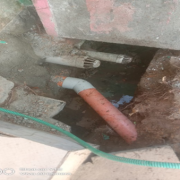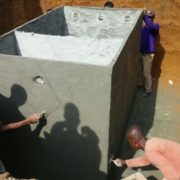Underground Sewerage Schemes: Last Mile Connectivity
To keep up with the demands of rapid urbanisation, the Government of Tamil Nadu (GoTN) has accorded priority to implement Under Ground Sewerage Schemes (UGSS) in all the needy Urban Local Bodies (ULBs) through different financial schemes in a phased manner. The GoTN has made efforts to reach the ‘last mile’ with adequate and equitable sanitation and hygiene in ULBs of Tamil Nadu. This paper aims to draw insights into the underlying factors and initiatives taken by the GoTN for the UGSS last-mile connectivity in the state.
Indeed, in a state like Tamil Nadu (TN), sanitation is essential for enhancing the quality of life and health and improving productivity. In this regard, GoTN has taken initiatives in UGSS implementation and also in Fecal Sludge Management (FSM) in a phased manner to reach last mile, which are broken down into three stages detailed in the full article attached herein: i) from 2000 to 2008; ii) from 2008 to 2017; iii) from 2018 to present.
Apart from the financial support initiatives to the households, dedicated Information, education and communication (IEC) programmes were also conducted in different parts of the state to educate the households on taking the service connections to avoid direct disposal of wastewater to the stormwater drains or the neighbouring lands.
For the ULBs which are not covered under the UGSS implementation scheme, a separate plan had been prepared on FSM for safely managed sanitation in the state. The timeline of legal and regulatory framework associated with FSM initiatives are given in the full article attached herein.
The use of water supply and sewerage connection deposits, interest-free loans, and taxes in Tamil Nadu suggests that long-term sustainability of sewerage systems can be achieved with policy commitment, effective project appraisals and citizen involvement. The efforts by GoTN on UGSS last-mile connectivity can be taken as a reference by other states to improve the last mile with inclusive sanitation. The major lesson learned from the UGSS implementation is that the selection of towns for the implementation has to be based more on public demand, their capacity to pay back the loan amount, and the financial capability of the ULB than on the readiness of the DPR for the project.



